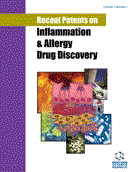Abstract
Chlamydophila pneumoniae is an intracellular pathogen and a major cause of pneumonia that can cause chronic, persistent, and often asymptomatic, infections in target cells such as monocytes, macrophages, endothelial cells, fibroblasts, and smooth muscle cells. Chlamydial infections play roles in new-onset wheezing, exacerbation of prevalent asthma, and long-term decrements in lung function. However, accurate standardized laboratory tests to diagnose infection with C. pneumoniae have not been established. Human and animal studies have clarified the molecular mechanisms of resistance to C. pneumoniae and have shown the importance of innate and mucosal immune responses to the microorganisms. A large number of genetic studies have intensively examined the associations between asthma and polymorphisms in the genes located at the interface between innate immune sensing and regulation. The rapid progress in understanding the immunology of infectious diseases and genetics of asthma is providing a better understanding of the pathogenesis of bronchial asthma, and that will help to define patient populations who are most likely to benefit from various treatments, and lead to development of new treatments. The review article also discussed some patent related to the field.
Keywords: Asthma, severity, chronic obstructive pulmonary disease (COPD), cardiovascular disease, respiratory infections, Chlamydophila pneumoniae, genetic polymorphisms, interferon-γ, Nod-like receptors, Toll-like receptors
 22
22














